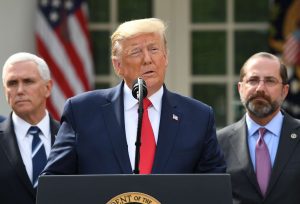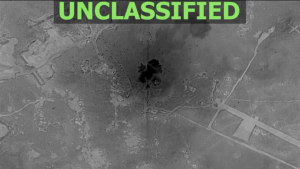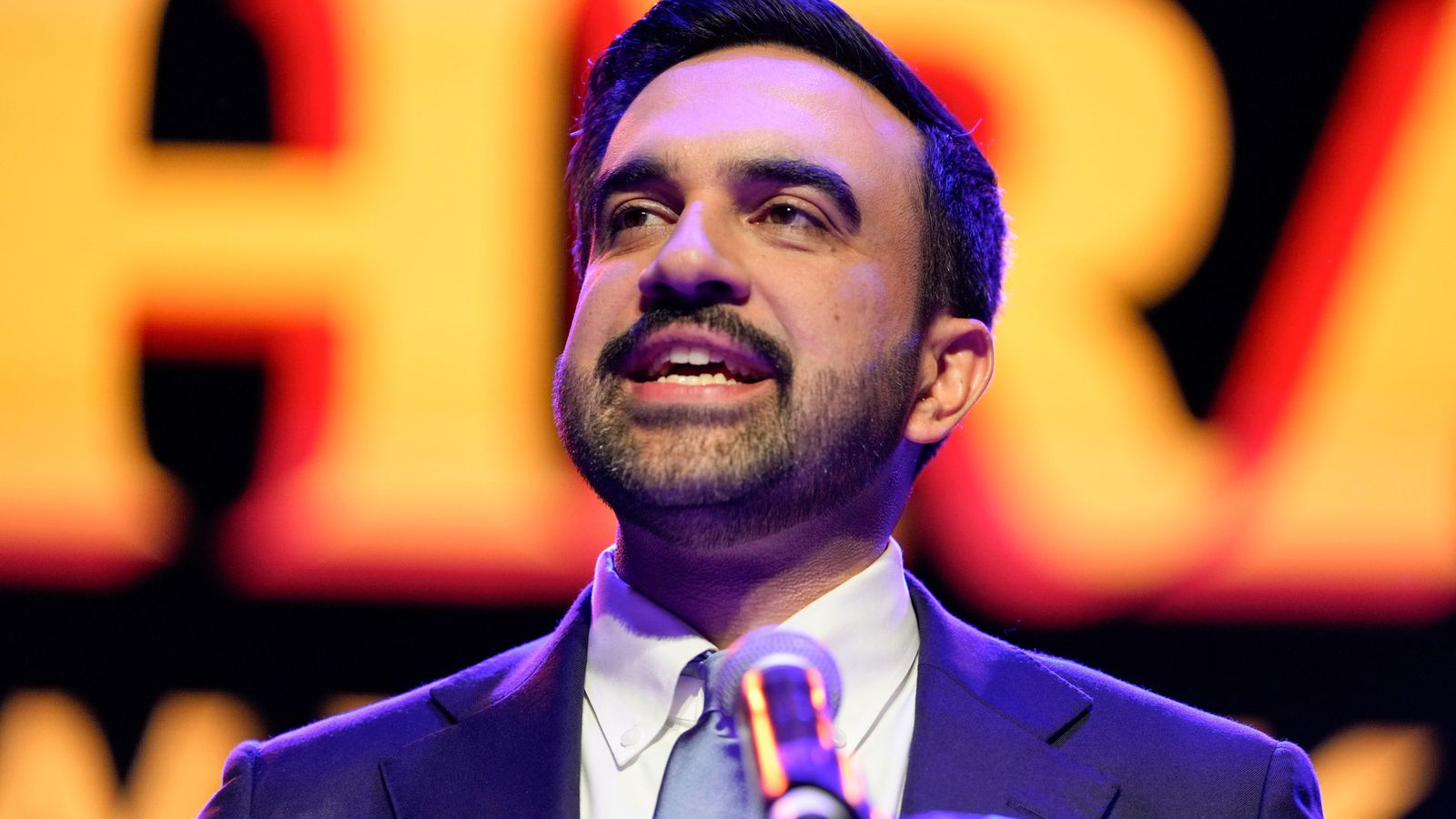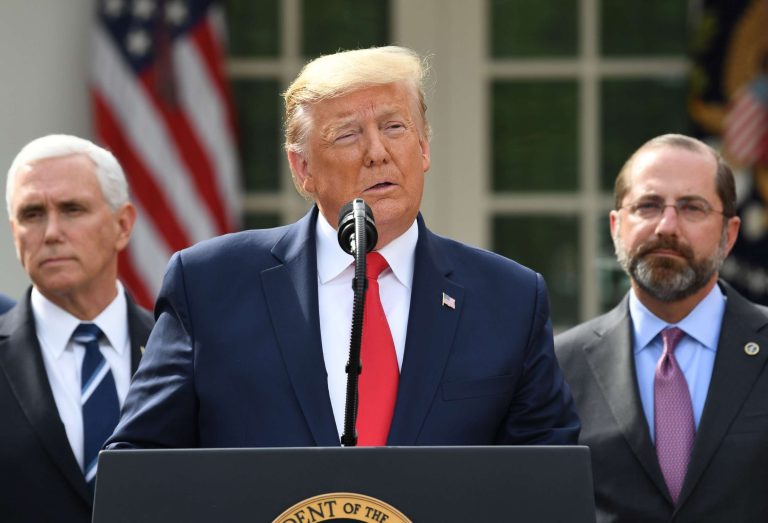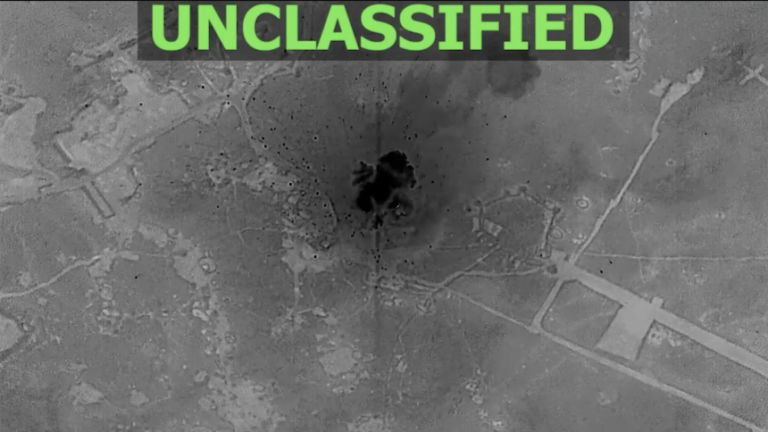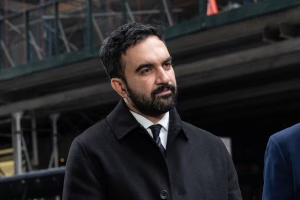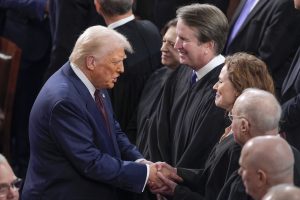A Tense Victory and an Uncertain Mandate
Zohran Mamdani’s narrow victory in New York City’s mayoral election has set the stage for one of the most closely watched transitions in recent city history.
The 34-year-old democratic socialist, who captured just over 50 percent of the vote in a surprisingly tight race against former Governor Andrew Cuomo, will take office on January 1, 2026. His margin of victory — only 8.8 percentage points — fell far short of pre-election polls that had shown him leading by more than 20.
While his win was historic for the city’s progressive movement, Mamdani’s fiery victory speech immediately drew criticism from political observers who questioned whether his tone signaled a confrontational governing style before his administration even begins.
The Speech That Sparked Concern
Speaking to a packed crowd at Brooklyn’s Paramount Theater on election night, Mamdani celebrated his win with language that struck both triumphant and combative notes.
In his remarks, he took direct aim at both of his political rivals — former Governor Cuomo and President Donald Trump.
“If anyone can show a nation betrayed by Donald Trump how to defeat him, it is the city that gave rise to him,” Mamdani declared, drawing loud applause from supporters.
He also addressed his opponent more pointedly, saying, “I wish Andrew Cuomo only the best in private life. But let tonight be the final time I utter his name.”
While the crowd cheered, some political strategists saw the comments as unnecessarily antagonistic.
“Last night was an angry Mamdani, a bitter Mamdani,” said Republican strategist Adam Weiss. “He wasn’t magnanimous. He was calling Trump all sorts of names. I don’t know why he’s going off on the sitting president of the United States. Be magnanimous, say, ‘We’d love to work together.’”
Weiss argued that Mamdani missed an opportunity to project unity after a divisive campaign. “If Trump or any Republican had done that, there would be wall-to-wall negative coverage,” he said.
Mixed Reactions Among Political Insiders
Reactions to Mamdani’s tone revealed a deeper split in how his leadership is being perceived across the political spectrum.
Veteran Democratic consultant Hank Sheinkopf offered a more pragmatic interpretation of the mayor-elect’s fiery rhetoric. “He doesn’t have to moderate, because he doesn’t have to do anything,” Sheinkopf said. “The issue will be: does he disappoint his constituency if he moderates his rhetoric?”
According to Sheinkopf, Mamdani’s sharp tone reflects a growing confidence within New York’s progressive movement — a bloc that sees itself not as a fringe faction but as an emerging force in urban politics.
Still, he noted that campaign speeches and city governance are two different arenas. “He doesn’t have the power at the MTA to get free buses, necessarily, because he’s only got four votes on the board,” Sheinkopf said. “He doesn’t have all the power he thinks he has on the rent stabilization board either. It’s not so simple.”
A Platform That Faces Structural Limits
Mamdani’s campaign was built on an ambitious progressive agenda that includes citywide free bus service, rent freezes for stabilized apartments, and publicly owned grocery stores.
His supporters argue these proposals would make New York more equitable and accessible for working-class residents. But critics warn that they could strain the city’s finances and overstep local authority.
“DSA members like Mamdani are great at organizing, great at energizing young, idealistic voters,” Weiss said. “But when it comes to governing, their ideas stink. You can’t just give away things, tax rich people, and think they’ll sit there and say, ‘OK, tax me to death.’ They’re going to leave.”
Mamdani’s policy challenges are real. Much of what he campaigned on — especially in transportation and housing — involves agencies and boards where the mayor has limited direct control. Analysts note that this structural reality could force him to rely on negotiation rather than unilateral action.
A Divided City and a Narrow Mandate
Despite his victory, Mamdani enters City Hall with a divided electorate. Outgoing Mayor Eric Adams, by comparison, won nearly 70 percent of the vote in 2021 — a figure that underscored a much broader base of support than Mamdani currently enjoys.
According to a Patriot Polling survey conducted two weeks before the election, 62 percent of foreign-born New Yorkers supported Mamdani, compared with just 31 percent of American-born voters.
Sheinkopf suggested that the city’s changing demographics — particularly growth within African, Muslim, and Chinese communities — played a decisive role in the outcome.
“Also what advantaged Mamdani was the changing nature of the city’s population,” Sheinkopf said. “Those shifts in community strength and participation changed the race fundamentally.”
Still, the narrow margin suggests a deep divide in how New Yorkers envision the city’s future. Weiss argued that Mamdani’s mandate “isn’t overwhelming” and that his administration’s early tone will determine whether he can unify skeptical voters.
“He doesn’t really have a crazy mandate,” Weiss said. “If he governs as the candidate we saw on election night — defiant, combative, ideological — it’s going to be a bumpy start.”
Governance in a Political Crossfire
Mamdani’s election comes at a time of heightened tension between New York City and the federal government. President Trump, who publicly opposed Mamdani during the campaign, has already hinted at reviewing federal funding for cities that “prioritize ideology over results.”
That backdrop could complicate the mayor-elect’s ability to deliver on his promises — and amplify the importance of his relationships with both Washington and Albany.
“Mamdani’s success may depend less on his ideals and more on his ability to build coalitions,” one city policy expert said. “He’s walking into an environment that’s both politically and fiscally constrained. How he adjusts his tone and strategy in those first few months will matter a lot.”
Supporters See Opportunity, Critics See Risk
For supporters, Mamdani’s rhetoric signals authenticity and courage. They see him as a politician unwilling to compromise his values, even when it means challenging powerful figures like Trump or Cuomo.
For critics, however, it raises questions about temperament and judgment. The mayor of New York, they argue, must be both visionary and diplomatic — someone capable of working across ideological divides to manage a city of nearly nine million people.
Weiss summarized that concern bluntly: “If Mamdani wants to govern successfully, he has to stop campaigning and start leading. That means less talking about Trump and more talking to the people of New York.”
The Road Ahead
Mamdani will officially assume office on New Year’s Day. In the weeks ahead, he is expected to announce key appointments to his administration, including deputy mayors and commissioners who could signal how he plans to translate campaign rhetoric into policy.
Observers say that his early personnel decisions will reveal whether he intends to adopt a confrontational or conciliatory governing style.
“If his appointments include pragmatic voices, that will calm nerves,” said one former City Hall official. “If it’s an echo chamber of activists, that’ll confirm fears that he’s planning to govern like he campaigned.”
As New York City prepares for a transition unlike any in recent memory, Mamdani faces a defining test — not just of policy but of tone. The next few months will show whether the fiery candidate who electrified progressive voters can evolve into the kind of consensus-builder needed to lead a complex and divided city.

Emily Johnson is a critically acclaimed essayist and novelist known for her thought-provoking works centered on feminism, women’s rights, and modern relationships. Born and raised in Portland, Oregon, Emily grew up with a deep love of books, often spending her afternoons at her local library. She went on to study literature and gender studies at UCLA, where she became deeply involved in activism and began publishing essays in campus journals. Her debut essay collection, Voices Unbound, struck a chord with readers nationwide for its fearless exploration of gender dynamics, identity, and the challenges faced by women in contemporary society. Emily later transitioned into fiction, writing novels that balance compelling storytelling with social commentary. Her protagonists are often strong, multidimensional women navigating love, ambition, and the struggles of everyday life, making her a favorite among readers who crave authentic, relatable narratives. Critics praise her ability to merge personal intimacy with universal themes. Off the page, Emily is an advocate for women in publishing, leading workshops that encourage young female writers to embrace their voices. She lives in Seattle with her partner and two rescue cats, where she continues to write, teach, and inspire a new generation of storytellers.

